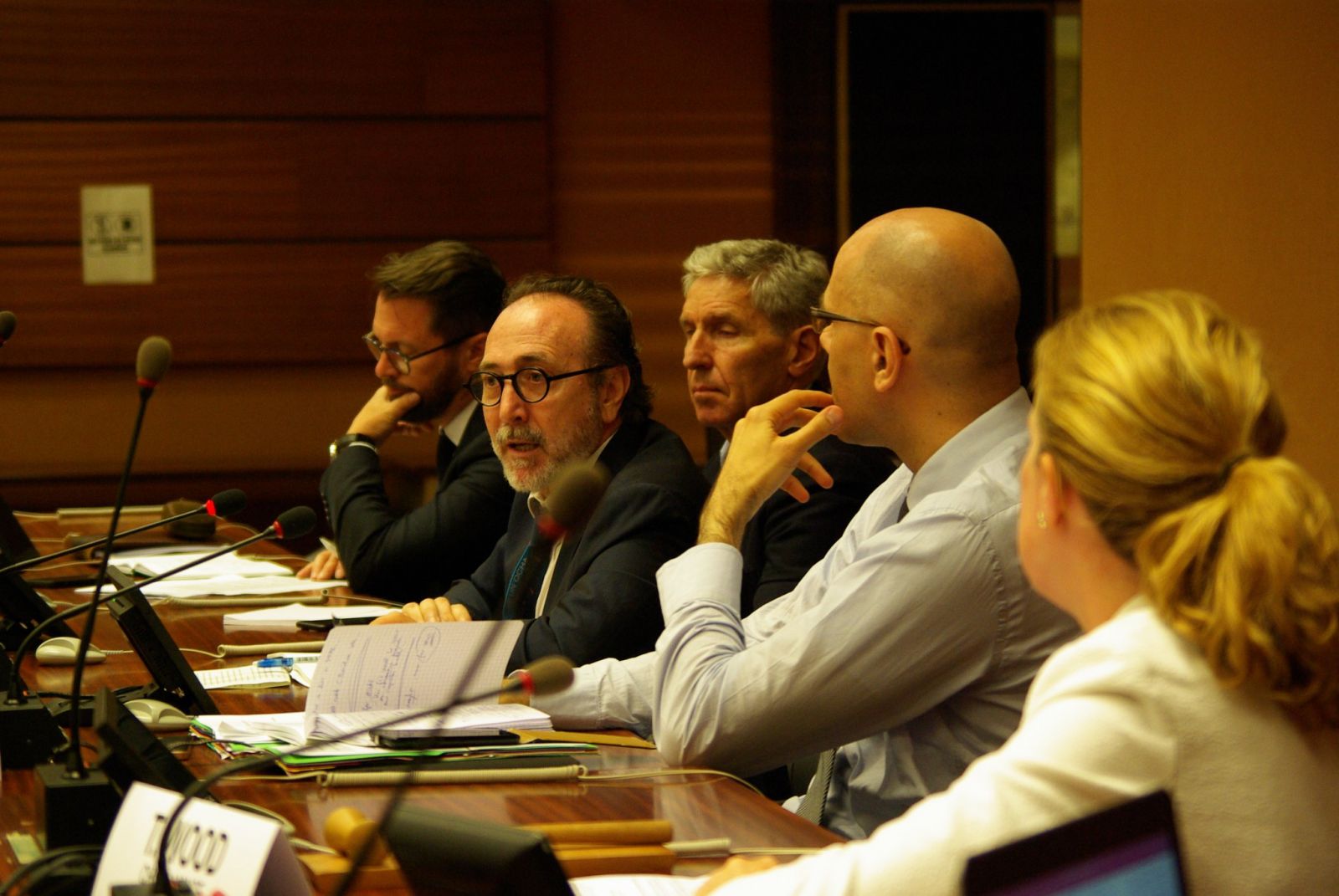Through the Eyes of Affected People: a Systematic Investment in Accountability Is Needed
24 June 2019
This morning CHS Alliance Executive Director Tanya Wood moderated one of the first panel discussions of the ECOSOC Humanitarian Affairs Segment held in Geneva. Panellists considered how – three years after the Grand Bargain was struck in Istanbul at the World Humanitarian Summit – signatories were making good (or not) on their commitments to be accountable to affected people and carry out joint needs assessments.
This morning CHS Alliance Executive Director Tanya Wood moderated one of the first panel discussions of the ECOSOC Humanitarian Affairs Segment held in Geneva. Panellists considered how – three years after the Grand Bargain was struck in Istanbul at the World Humanitarian Summit – signatories were making good (or not) on their commitments to be accountable to affected people and carry out joint needs assessments.
DG ECHO’s Kim Eling started with the good news. Only a few years ago there was no consensus on the importance of Accountability to Affected People (AAP) and joined-up needs assessments. Organisations were reluctant to commit to these agendas because they were immensely political – intertwined in how humanitarian organisations do business, how they relate to their donors and how they relate to one another. This impasse no longer exists, he said. “We’re at a breakthrough moment following long conversations… the tools exist and we have agreed to a set of basic principles.”

To take the conversation from a global, theoretical discussion to a country-specific one, Ground Truth Solution’s (GTS) Executive Director Nick van Praag provided details on an ongoing project in Chad. For the past 18 months, the CHS Alliance and GTS, with the financial support of the Swedish Development Cooperation Agency (Sida), have been supporting the Humanitarian Country Team in Chad in its efforts to improve AAP at the response-wide level.
Ground Truth Solutions conducted three rounds of perception surveys, with questions designed in line with the Core Humanitarian Standard for Quality and Accountability. The percentage of affected people who feel informed about the different services available to them has increased from 60% in mid-2018 to 76% in early 2019; the percentage who feel respected by humanitarian actors from 76% to 82%. This pilot project demonstrated that monitoring a humanitarian response through the eyes of affected people can help deliver on AAP objectives and deliver better aid.
Tanya Wood warned the audience that if accountability lags behind, the humanitarian community could face a triple jeopardy: delivering aid that was ineffective, unable to adapt to feedback, and doing more harm than good. Her calls for more specificity on how to invest in the systematisation at every level were echoed by interventions from the CERAH, Global Mentoring Initiative, HelpAge, GenCap, the WASH Cluster and others underscoring the importance of localization, gender, age, disabilities and bridging data divide.
DFID’s Senior Adviser Dylan Winder offered a good place to start: donors should better coordinate with one another and use the same systems to identify their often competing priorities. He stressed that more effort should be made to systematically hear the views of people affected, and that more investment is needed to achieve this.
While much progress has been made in gaining acceptance of these agendas, the event concluded that significantly more systematic investment is required for a truly people-centred response. The drumbeat of accountability is getting louder – with the challenge of turning it into action. The Core Humanitarian Standard was designed with this in mind.
